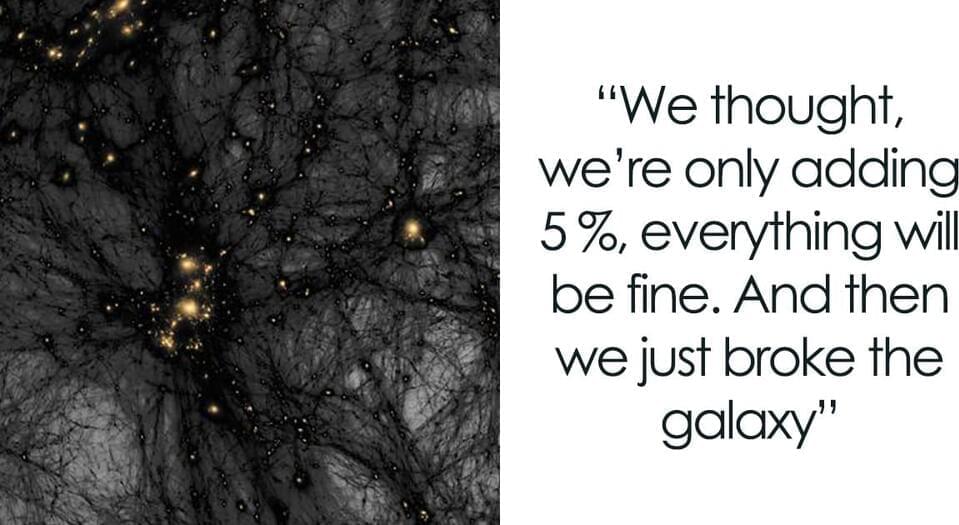Recently more careful examination of the structure of the universe has thrown up fresh reasons to doubt cold dark matter. Its concept may work well at the largest scales, but on the scale of individual galaxies, something seems incomplete.
According to the cold dark matter model, dark matter sub-halos of all sizes, right down to Earth-scale masses, should exist. This would be a lot of invisible cannonballs to be floating around the Milky Way and interacting with star streams, yet hardly any evidence has been found, besides in 2018, when Adrian Price-Whelan and Ana Bonaca found that one particular star stream, better known as GD-1, has gaps along its length, as if it has been hit multiple times.
Another more recent doubt about the cold matter concept is that simulations show halos should get denser towards the center of the galaxy: the closer you get to the center, the more dark matter per unit volume should be. However, when astronomers look at the way galaxies move, this isn’t what they see: the dark matter appears evenly distributed across the halo of our galaxy, especially in the core regions. Which could be a hint that something more complex is going on.
